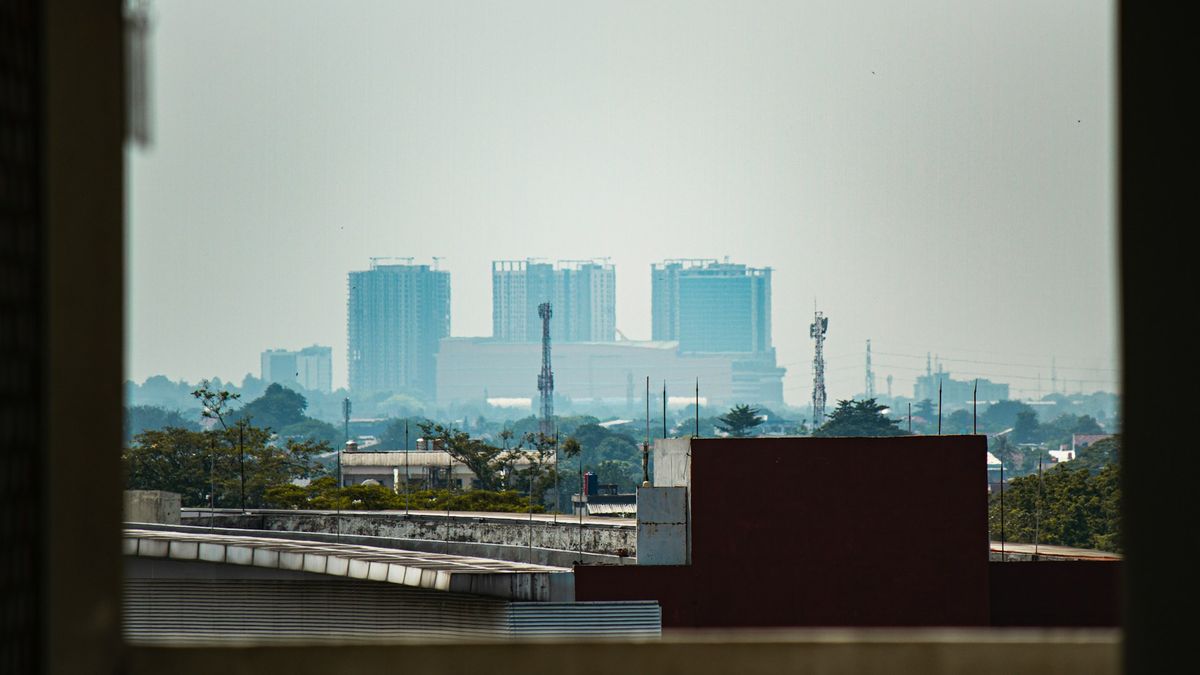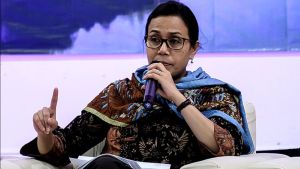JAKARTA - Deputy Speaker of the Indonesian House of Representatives Cucun Ahmad Syamsurijal reflects on various national agendas that occurred in Indonesia during 2024. Welcoming the new year 2025, he hopes that community welfare development will be further improved because it becomes the capital of the nation's progress.
"At the end of 2024, there are two national agendas that should be grateful for. First, the change of national leadership went smoothly, and even resulted in positive sentiment for social cohesion," said Cucun Ahmad Syamsurijal, Tuesday (31/12/2024).
"Second, the political dynamics in the DPR related to changes in the national leadership regime are also very conducive. The two big agendas are very important because this is where the formulation and implementation of development began," he continued.
Cucun said a conducive and harmonious situation was a condition for development. Therefore, many figures remind that imperfect leadership is still better than chaos due to leadership vacancies.
The chaos in the form of social and political conflicts must be an obstacle to development. Even the Prophet SAW called it a "religious shaving", said Cucun.
Furthermore, Cucun stated that 2024 is a political year, where there is a change in the leadership regime, and development continues to be carried out by all components of the nation, especially through the pillars of the state, namely executive, legislative, and judicial.
"The People's Representative Council of the Republic of Indonesia as one of the pillars plays a central role in carrying out its functions in the fields of legislation, budgeting and supervision," explained the legislator from the West Java II electoral district.
SEE ALSO:
Through the Council Apparatus (AKD) it has, the DPR is said to have obtained a constitutional mandate to realize people's welfare by drafting bills, allocating budgets, and supervising and evaluating policies taken by the government in order to realize people's welfare.
Indonesia's welfare development performance shows improvement at several dimensions and levels. However, there are many notes that require breakthroughs in order to produce optimal achievements," explained Cucun.
The achievement of the Human Development Index (HDI) in 2024 increased to 75.08 and placed Indonesia from order 114 to 112. HDI itself highlighted three dimensions of development, namely education, health, and decent living standards. Even so, Cucun said this sequence is still at the bottom level.
Especially when compared to the achievements of neighboring countries, such as Singapore or Malaysia, which have very high HDI. It is undeniable that education is a social escalator for welfare, "he said.
Cucun assessed that the Government has pursued various ways to produce higher-quality education, but this has not happened as expected. According to him, there has been no significant change in the achievement of education.
Referring to the Programme for International Student Assessment (PISA) score, Indonesia's educational condition is not doing well. The literacy value fell from 397 in 2015 to 359 in 2022. Then the numeracy value fell from 386 to 366, while science fell from 403 to 383 in the same period.
The part of education is educating the public to participate in eradicating violence against women and children. The violent emergency bells always echo, but the solution has not changed much, "explained Cucun.
Data in 2024 states that there were 12,637 cases with 13,487 victims. As many as 80 percent of violence experienced by women with a maximum age group of 13-17 years and 62 percent were children. Meanwhile, 86.6 percent of the perpetrators were men with a maximum age of 25-44 years (45 percent).
On the public health side, Indonesia has recorded progress in controlling infectious diseases such as malaria, dengue fever, tuberculosis, and HIV-AIDS, although control efforts still need to be strengthened. Responses to new infectious diseases, such as the H5N1 bird flu and the Covid-19 pandemic, also show an increase in the capacity of the national health system.
However, the burden of Infectious Diseases, such as stroke,ten heart disease, and cancer, continues to increase and is the main cause of death in Indonesia, surpassing infectious diseases such as tuberculosis and respiratory tract infections.
Previously, non-communicable diseases were found more in the elderly. Currently, the prevalence of Infectious Diseases is increasing in the 10'14 year age group and the most diseases are heart disease, blood disorders, malanutrition, and diabetes.
In terms of poverty alleviation achievement, the percentage of poor people in March 2024 was 9.03 percent, which was equivalent to 25.22 million people, a decrease of 0.33 percentage points against March 2023 and a decrease of 0.54 percentage points against September 2022.
Cucun said poverty alleviation is arguably slow. In the last ten years, the reduction in the poverty rate was only about 2 points per percent or 0.2 points per year.
In extreme poverty, achievements over the past decade have been quite good. The Central Statistics Agency (BPS) reported that the extreme poverty rate in Indonesia had decreased significantly, from 6.18 percent in 2014 to only 0.83 percent in March 2024. This figure missed the target of President Joko Widodo's administration which targets zero percent extreme poverty in 2024.
The problem of inequality is also a serious problem in Indonesia. If you look at the Gini Index, Indonesia is reported to be ranked second in ASEAN in terms of inequality," he explained.
However, until March 2024, the government managed to reduce the inequality to 0.379 from 0.388 years ago.
In the future, Cucun assesses that welfare development faces challenges that are not easy. Digital disruption is estimated to sweep 85 million old jobs. At the same time, disruption gave birth to more new jobs.
"Therefore, the government's efforts to carry out reskilling and upskilling cannot be negotiated anymore. If not, then the victims of unemployment and poverty will be in disarray," said Cucun.
The chairman of the DPR, the coordinator of the people's welfare sector (Kesra), also highlighted the emergence of mental and moral illness in society. Cucun said there were various causes.
"One of them is because it is facilitated by the advancement of global technology which is also a challenge, such as online gambling. There is no welfare whose solution comes from gambling," said the doctor, who graduated from Padjadjaran University (Unpad).
The English, Chinese, Japanese, Arabic, and French versions are automatically generated by the AI. So there may still be inaccuracies in translating, please always see Indonesian as our main language. (system supported by DigitalSiber.id)

















